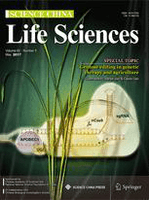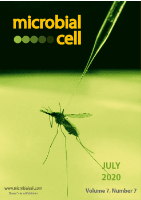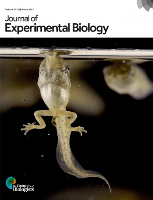
Science China-Life Sciences
Scope & Guideline
Leading the charge in innovative biological solutions.
Introduction
Aims and Scopes
- Molecular and Cellular Biology:
Research on the molecular mechanisms underpinning cellular processes, including gene expression, signal transduction, and cellular metabolism. - Genomics and Genetic Engineering:
Studies involving genome sequencing, gene editing technologies such as CRISPR, and their applications in agriculture and medicine. - Microbiome Research:
Exploration of the interactions between host organisms and their microbiota, with implications for health, disease, and nutrition. - Ecology and Evolutionary Biology:
Investigations into the ecological dynamics and evolutionary processes of various organisms, with a focus on adaptation and biodiversity. - Immunology and Cancer Biology:
Research on immune responses, tumor biology, and novel therapeutic strategies for cancer treatment. - Plant Sciences and Biotechnology:
Studies on plant genetics, breeding, and biotechnology aimed at improving crop resilience and productivity. - Neuroscience and Behavioral Biology:
Research focusing on neural mechanisms underlying behavior, cognition, and neurodevelopment.
Trending and Emerging
- CRISPR and Gene Editing Technologies:
An increasing number of studies are utilizing CRISPR and other gene editing technologies to explore novel applications in agriculture and medicine, indicating a strong trend towards precision biotechnology. - Microbiome and Host Interactions:
Research on the gut microbiome and its influence on health and disease is gaining traction, highlighting its importance in various biological and medical fields. - Immunotherapy and Cancer Treatment:
There is a notable rise in research focused on novel immunotherapeutic approaches for cancer treatment, reflecting a broader trend in oncology. - Multi-Omics Approaches:
The integration of genomics, transcriptomics, proteomics, and metabolomics is increasingly prevalent, showcasing the trend towards comprehensive biological analyses. - Artificial Intelligence in Biological Research:
The application of AI in analyzing biological data and enhancing research methodologies is emerging as a significant trend, indicating a convergence of technology and biology. - Plant Resilience and Biotechnology:
Research on enhancing plant resilience through biotechnological innovations, especially in response to climate change, is on the rise, reflecting global agricultural challenges.
Declining or Waning
- Traditional Pharmacology:
Research focused on traditional medicinal compounds and their pharmacological effects has seen a decline, possibly due to a shift towards molecular and mechanistic studies. - Basic Animal Physiology Studies:
Studies that primarily focus on basic physiological processes without translational applications are appearing less frequently. - Conventional Breeding Techniques:
Research using traditional breeding methods is being overshadowed by genetic engineering and biotechnological approaches, resulting in fewer publications in this area. - Environmental Impact Studies:
While still relevant, there seems to be a reduced emphasis on studies solely focused on environmental impacts, with more attention being given to molecular and genetic factors. - Epidemiological Studies:
Epidemiological research, particularly in non-communicable diseases, appears to be waning as more focus shifts towards molecular and genetic underpinnings of diseases.
Similar Journals

Biology-Basel
Pioneering Research for Tomorrow's SolutionsBiology-Basel is a premier, peer-reviewed open-access journal published by MDPI since 2012, situated in the heart of Switzerland. With an E-ISSN of 2079-7737, this journal serves as a vital platform for the dissemination of innovative research across the broad spectrum of Agricultural and Biological Sciences, Biochemistry, Genetics, Molecular Biology, and Immunology. Recognized for its rigorous editorial standards and impactful findings, it currently ranks Q1 in Agricultural and Biological Sciences and holds impressive positions in several categories according to the 2023 Scopus rankings. The journal’s open-access model ensures that high-quality research is freely available to a global audience, fostering collaboration and knowledge sharing among researchers, professionals, and students alike. Spanning from 2012 to 2024, Biology-Basel is committed to reflecting the latest advancements in biological sciences, making it an essential resource in the ever-evolving landscape of biological research.

COMPTES RENDUS BIOLOGIES
Pioneering Research for a Sustainable FutureCOMPTES RENDUS BIOLOGIES, published by the esteemed Académie des Sciences, is a prominent journal based in France that contributes significantly to the fields of Agricultural and Biological Sciences, Biochemistry, Genetics and Molecular Biology, as well as Immunology and Microbiology. With a notable Q3 ranking in several categories as of 2023, this journal serves as an essential platform for disseminating groundbreaking research and advancements in these disciplines. Access is currently available under open access options, enhancing the reach and accessibility of its published findings. The journal has been in continuous publication since 1959, with a current focus extending to 2024, ensuring that it remains at the forefront of scientific communication. With its diverse scope and commitment to quality research, COMPTES RENDUS BIOLOGIES plays a crucial role in fostering dialogue and collaboration among researchers, professionals, and students who are dedicated to understanding and addressing complex biological questions.

Microbial Cell
Empowering knowledge sharing in the microbial sciences.Microbial Cell is a distinguished open-access journal published by SHARED SCIENCE PUBLISHERS OG, focusing on the dynamic fields of microbiology, biochemistry, and molecular biology. Since its establishment in 2014, Microbial Cell has been at the forefront of disseminating cutting-edge research essential for advancing our understanding of microbial functions and interactions. With a commendable impact factor and ranking in the top quartiles (Q1 and Q2) across several categories, including Applied Microbiology and Biotechnology and Parasitology, this journal serves as an invaluable resource for researchers, professionals, and students alike. It features a comprehensive scope that encompasses the latest findings in genetics, cell biology, and virology, facilitating the academic community's access to high-quality peer-reviewed work. Microbial Cell not only contributes to advancing microbial sciences but also fosters an inclusive platform for knowledge sharing and collaboration in the scientific community.

INDIAN JOURNAL OF EXPERIMENTAL BIOLOGY
Driving Scientific Discovery in Health and EnvironmentINDIAN JOURNAL OF EXPERIMENTAL BIOLOGY, published by the NATL INST SCIENCE COMMUNICATION-NISCAIR, stands as a significant platform for the dissemination of original research in the fields of biochemistry, genetics, and molecular biology, particularly within the context of Indian scientific advancements. With its ISSN 0019-5189 and E-ISSN 0975-1009, the journal has been an essential resource since its inception in 1965, although coverage in prominent databases like Scopus was discontinued in 2018. The journal ranks in the 57th percentile for Biotechnology, as well as in the 27th and 25th percentiles for Molecular Biology and Cell Biology respectively, underscoring its impact and relevance. While currently not an Open Access journal, it continues to provide valuable insights and contributions from researchers and professionals in the growing field of experimental biology. The esteemed contributions published in this journal enhance our understanding of biological processes and foster the development of innovative solutions to contemporary challenges in health and environmental science.

Vavilovskii Zhurnal Genetiki i Selektsii
Advancing the Frontiers of Genetics and SelectionVavilovskii Zhurnal Genetiki i Selektsii, with ISSN 2500-0462 and E-ISSN 2500-3259, is a distinguished open-access journal published by the Russian Academy of Sciences, Institute of Cytology and Genetics. Since transitioning to open access in 2013, the journal has been dedicated to advancing research and discourse in the fields of genetics and selection, particularly within agricultural and biological sciences. With a current ranking of Q2 in Agricultural and Biological Sciences and Q3 in Biochemistry, Genetics and Molecular Biology according to Scopus, it serves as a pivotal platform for researchers, professionals, and students to disseminate their findings and collaborate on innovative ideas. The journal, housed in the vibrant academic environment of Novosibirsk, Russia, publishes a diverse range of articles that contribute to the ongoing evolution of genetic studies and practical applications in agriculture. Its commitment to quality and accessibility ensures it plays an essential role in the global scientific community, fostering knowledge that bridges theoretical research and practical implementation.

Open Biology
Empowering discoveries through open access research.Open Biology is a prestigious, interdisciplinary journal published by the Royal Society that has been paving the way in the fields of Biochemistry, Genetics and Molecular Biology, Immunology, and Neuroscience since its inception in 2011. Catering to a global audience of researchers, professionals, and students, Open Biology operates under an open access model, facilitating the unrestricted dissemination of high-quality research findings. With a current impact factor that positions its categories in the top quartile (Q1) and impressive Scopus rankings—evidencing its influence and reach—this journal serves as a vital platform for innovators and scientific inquiries aimed at advancing our understanding of life sciences. The journal's commitment to publishing cutting-edge research makes it an essential resource for those at the forefront of scientific exploration.

IUBMB LIFE
Advancing the Frontiers of Life SciencesIUBMB LIFE is a prestigious, peer-reviewed journal published by WILEY, dedicated to advancing the fields of biochemistry, molecular biology, and cell biology. With an impressive impact factor and consistently ranked in the Q1 and Q2 categories across multiple relevant disciplines—including Biochemistry, Genetics, and Clinical Biochemistry—this journal has established itself as a leading platform for disseminating innovative research and critical reviews that propel scientific discovery. The journal spans a converged publication period from 1999 to 2024, providing comprehensive insights into the dynamic landscape of biochemical research. Researchers, professionals, and students alike are invited to explore its Open Access options, ensuring that groundbreaking studies are accessible to a global audience. As it continues to shape the future of life sciences, IUBMB LIFE remains a vital resource for those seeking to enrich their understanding and contribute to these rapidly evolving fields.

Communications Biology
Connecting Researchers through Cutting-Edge DiscoveriesCommunications Biology, published by NATURE PORTFOLIO, is a premier open-access journal that has been at the forefront of biological sciences since its inception in 2018. With a remarkable impact factor and a strong reputation in the field, it has achieved prestigious Q1 rankings in Agricultural and Biological Sciences, Biochemistry, Genetics and Molecular Biology, and Medicine, highlighting its significance in disseminating cutting-edge research. The journal is renowned for its focus on innovative, interdisciplinary biological studies, making it an essential platform for researchers, professionals, and students alike, eager to contribute to and engage with the latest discoveries. With its commitment to accessibility, all articles published are openly available to the global research community, furthering the collaboration and advancement of knowledge in the biological sciences. For more information, access options, and submission guidelines, please visit the journal's website.

Cold Spring Harbor Perspectives in Biology
Catalyzing Knowledge in Molecular Biology and BeyondCold Spring Harbor Perspectives in Biology is a prestigious academic journal published by COLD SPRING HARBOR LAB PRESS that serves as a vital resource in the fields of Biochemistry, Genetics, and Molecular Biology. With an impressive impact factor and categorized in the Q1 quartile for its contributions, this journal is renowned for curating comprehensive reviews that synthesize the latest advancements and ongoing research in these dynamic and interconnected disciplines. Since its inception in 2009, the journal has played a pivotal role in advancing scientific knowledge through high-quality articles that cater to researchers, professionals, and students alike. Although it operates on a traditional subscription model, its contributions are indispensable for those seeking to remain at the forefront of biological research and its myriad applications. With a commendable ranking of #19 out of 221 in general biochemistry, genetics, and molecular biology on Scopus, this journal ensures that its readers have access to cutting-edge insights and a rigorous academic discourse.

JOURNAL OF EXPERIMENTAL BIOLOGY
Catalyzing Progress in the World of Experimental BiologyJOURNAL OF EXPERIMENTAL BIOLOGY, published by COMPANY BIOLOGISTS LTD, stands as a cornerstone in the fields of Animal Science, Aquatic Science, Ecology, Insect Science, and Physiology. With a rich history dating back to 1945, this esteemed journal has continually provided a platform for high-quality research, evidenced by its impressive Q1 rankings across multiple categories in the 2023 Journal Citation Reports. Located in the United Kingdom, it serves an international audience, offering critical insights and advancements in various biological sciences. As a non-open access journal, it provides rigorous peer-reviewed articles that contribute profoundly to our understanding of biological processes and their implications. With an extensive reach among researchers, practitioners, and academia, the JOURNAL OF EXPERIMENTAL BIOLOGY is not only a repository of knowledge but also a catalyst for ongoing research and innovation in experimental biology.